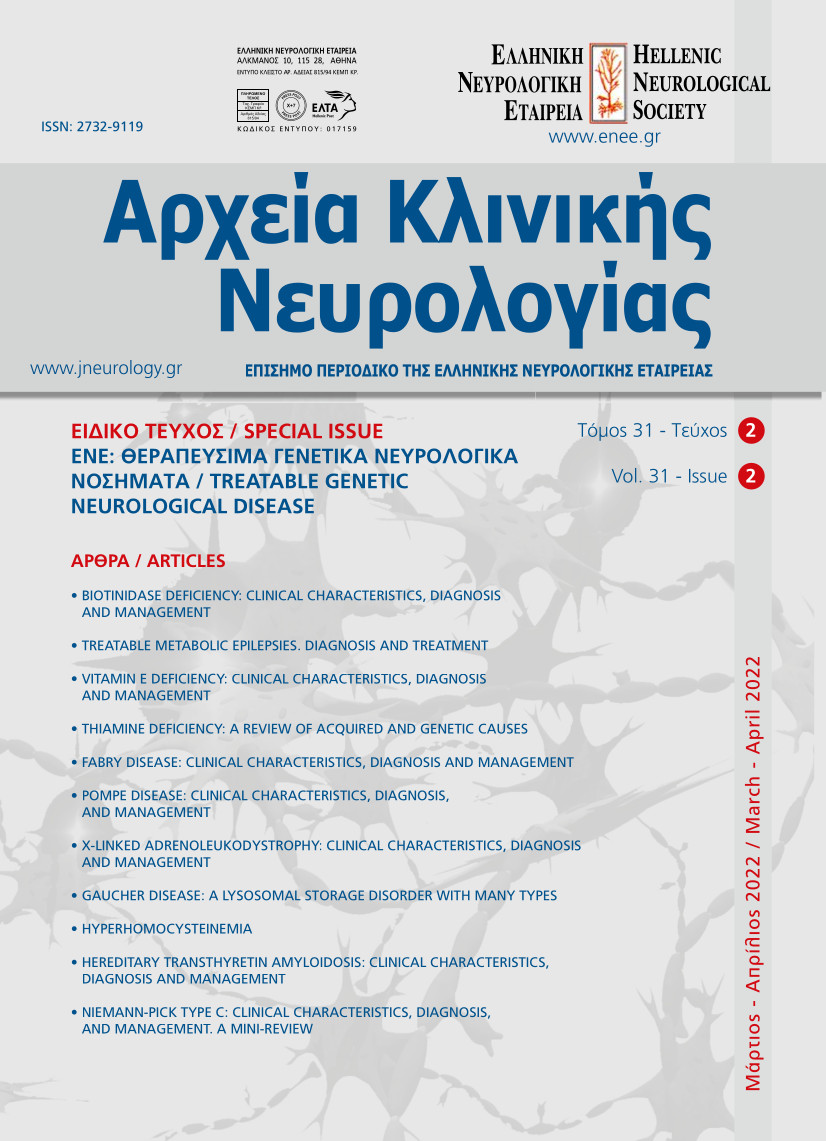BIOTINIDASE DEFICIENCY: CLINICAL CHARACTERISTICS, DIAGNOSIS AND MANAGEMENT
Abstract
Biotinidase deficiency (BTD) is a rare neurocutaneous
disorder inherited by an autosomal recessive
gene in which the enzyme biotinidase is defective.
Consequently, the vitamin biotin is not produced
from biocytine. Clinical manifestations of patients
with BTD can appear at any timepoint from infancy
to adulthood. Various neurological, ophthalmological
and dermatological symptoms may occur in not
treated patients with BTD, such as epilepsy, ataxia,
developmental delay, hearing loss, alopecia and skin
rashes [1-3]. Many of the above symptoms can be
alleviated if supplementation with biotin is initiated
at an early stage of the disease [3, 4]. However, deficiencies
of hearing and vision may persist even after
the initiation of oral biotin therapy [5].
Downloads
Published
2022-04-01
Issue
Section
Reviews


